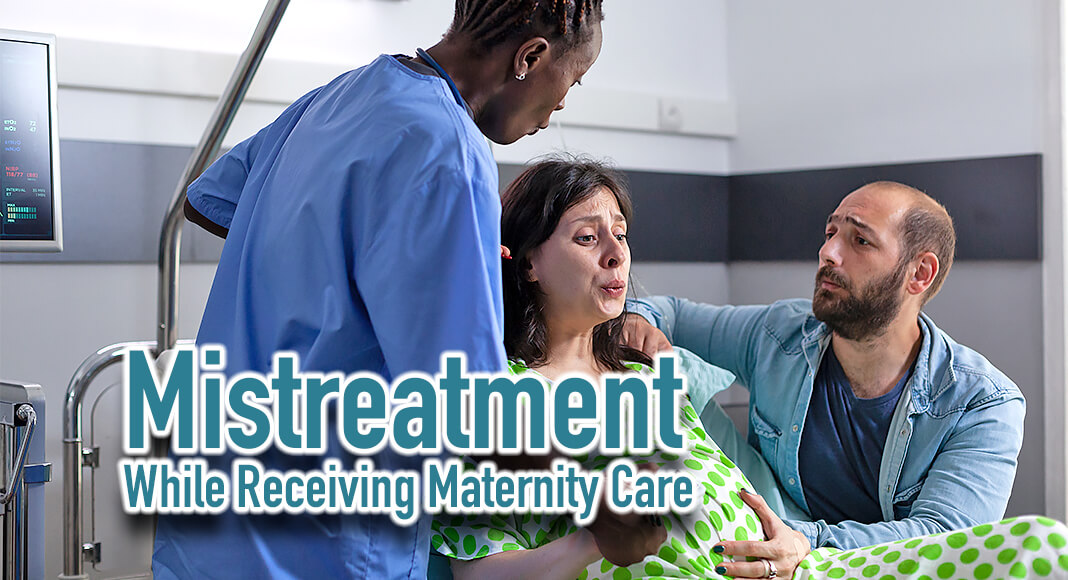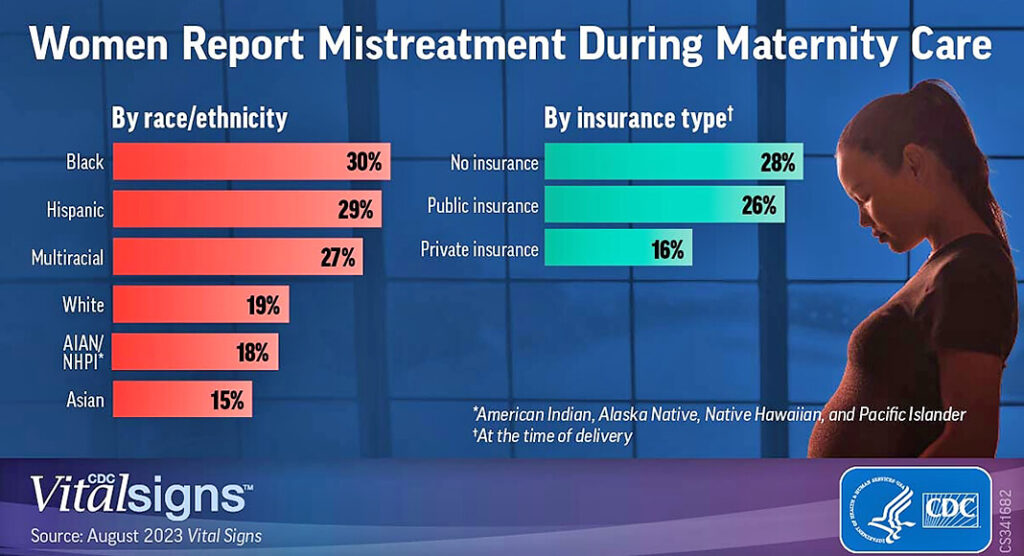
Mega Doctor News
Twenty percent of women surveyed reported experiences of mistreatment during pregnancy and delivery care, according to a new CDC Vital Signs report. Mistreatment during maternity care was higher among Black (30%), Hispanic (29%), and multiracial (27%) women.
“Every mother deserves to be treated with dignity and respect. Maternal care is a core component of this nation’s health care, and the Biden-Harris Administration is committed to improving maternal health outcomes,” said U.S. Department of Health and Human Services Secretary Xavier Becerra. “Bias, stigma, and mistreatment have no place in our healthcare systems.
Women with no insurance (28%) or public insurance (26%) at the time of delivery experienced more mistreatment during maternity care than women with private insurance (16%).
The most common types of mistreatment reported were:
- Receiving no response to requests for help
- Being shouted at or scolded
- Not having their physical privacy protected
- Being threatened with withholding treatment or made to accept unwanted treatment
CDC analyzed data from the Porter Novelli View Moms survey administered in English from April 24-30, 2023, to examine components of respectful care. While most of the 2,402 survey respondents reported overall satisfaction with the maternity care they received, satisfaction was lower among those who experienced mistreatment.

Improving the quality of maternity care is one approach that can prevent pregnancy-related deaths. All women deserve respectful maternity care that maintains their dignity, privacy, and confidentiality, ensures freedom from harm and mistreatment, and includes shared decision-making and continuous support.
“As a healthcare community, we need to do all we can to make sure we are delivering equitable and respectful care to women during pregnancy and delivery,” said CDC Chief Medical Officer Debra Houry, M.D., M.P.H. “Health systems, hospitals, and providers can take steps to improve care and lower the risk of pregnancy-related complications and death for all women. These data show that we must do better to support moms.”
Twenty-nine percent of women reported discrimination during maternity care. The most common reasons for reported discrimination were age, weight, and income and varied by race/ethnicity.
Black (40%), multiracial (39%), and Hispanic (37%) women reported the highest rates of discrimination. Experiences of racial discrimination have previously been associated with pregnancy complications.
Nearly half (45%) of women reported holding back from asking questions or discussing concerns with their provider during maternity care. The most common reasons included:
- Thinking, or being told by friends or family, what they were feeling was normal
- Not wanting to make a big deal about it or being embarrassed to talk about it
- Thinking their healthcare provider would think they’re being difficult
- Thinking their healthcare provider seemed rushed
- Not feeling confident that they knew what they were talking about
Effective communication among healthcare providers and patients can build trust and contribute to high-quality care. It is important for patients to feel comfortable sharing health concerns with their providers, which could lead to more accurate and timely treatment for pregnancy-related complications.
“As a doctor, mother, and Black woman, it is disheartening to hear how common mistreatment is and to see differences in mistreatment and discrimination during maternity care based on things like race and insurance coverage,” said CDC Division of Reproductive Health Director Wanda Barfield, M.D., M.P.H., F.A.A.P. “We know that racism and discrimination can lead to delays in treatment and sometimes tragic and preventable deaths. Healthcare provider trainings on unconscious bias and culturally appropriate care may be a first step in understanding how to provide respectful maternity care to all women.”
Respectful maternity care can be part of actions at many levels to reduce pregnancy-related deaths.
- Healthcare systems can encourage a culture of respectful maternity care by hiring and keeping a diverse workforce and training all healthcare staff to recognize unconscious bias and stigma.
- Healthcare systems can promote quality improvement actions with a focus on increasing respectful maternity care for all women equally.
- Healthcare professionals can take steps to make patients feel respected, understood, and valued during their care.
- Everyone can support pregnant and postpartum women in getting the care they need.
CDC’s Hear Her campaign has resources for providers and for pregnant and postpartum women and their support networks to help share concerns with providers and know the urgent maternal warning signs for when to seek care right away.
Information Source: CDC









